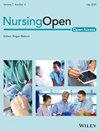接受差异的合法性:支持西方健康研究中人类研究伦理非殖民化的工具。
摘要
在卫生研究的背景下,需要以包容和伦理敏感的方式代表第一民族人口的价值观、传统和世界观。当前的人类研究伦理过程深深植根于西方哲学,这可能导致与第一民族人口的价值观频繁的紧张和不一致,表明西方人类研究伦理过程非殖民化的必要性。虽然认识到西方和第一民族的研究伦理范式之间潜在的一致性是很重要的,但认识和解决这两种观点之间固有的复杂性和差异是至关重要的。这些差异也表现在向第一民族提供保健、保健教育和提供其他服务方面。这可能会加剧目前第一民族获得高质量保健的能力差距。文化上的不敏感、系统性的偏见以及缺乏原住民代表也可能使这些问题恶化。本讨论文件的目的是研究影响健康研究的主流西方哲学观点,并探讨其与第一民族的信仰和文化习俗的错位。现有的文献,检查面临的挑战,当导航规范与西方伦理在健康研究过程中的第一民族将被探索。还将考虑殖民的历史背景及其对第一民族社区内伦理范式的影响。显然,需要在第一民族人口的健康研究伦理中使西方化的主导方法非殖民化,因为这种方法可能对第一民族社区的福祉和权利构成重大挑战。通过促进一个更公平、包容和文化知情的研究伦理框架,研究人员可以促进解决历史不公正问题的进程的发展,并促进专门研究第一民族所经历的现象的调查。对专业的影响:本文对当前西方卫生研究伦理过程进行了批判,并提出了一个基于证据的工具来指导研究人员促进包容性和文化安全。实施这些建议可以改善第一民族和社区的健康和福祉成果。影响:本文解决了西方健康研究伦理中的文化不敏感和系统性偏见问题,强调了非殖民化以确保第一民族人口公平获得医疗保健的必要性。研究结果将通过促进文化安全的研究实践和促进原住民社区更好的健康结果,影响研究人员、医疗保健专业人员和政策制定者。这项研究解决了什么问题?该研究解决了西方卫生研究伦理与第一民族的价值观和文化习俗之间的不一致,这种不一致导致了文化不敏感、系统性偏见以及医疗保健获取和质量方面的差异。主要发现是什么?西方和原住民研究伦理范式之间存在显著差异,包括对同意、关系、数据所有权和整体福祉的不同看法。西方框架延续了文化的不敏感和边缘化,加剧了医疗保健的不平等。这项研究将对谁和在哪里产生影响?该研究将通过促进文化安全的研究实践来影响研究人员、卫生保健专业人员和政策制定者。研究结果旨在为澳大利亚原住民社区以及全球其他原住民群体提供更好的健康结果。这篇论文对更广泛的全球临床社区有什么贡献?本文对西方卫生研究伦理及其对第一民族人口的影响进行了批判性审查,为非殖民化研究实践提供了一个框架。拟议的循证工具可以指导全球临床界促进包容性和文化安全,最终改善全世界土著人民的健康成果。没有病人或公众捐款。Within the context of health research, the values, traditions and worldviews of First Nations populations need to be represented in an inclusive and ethically sensitive way. Current human research ethics processes are deeply rooted in Western philosophy, which may result in frequent tension and misalignment with the values of First Nations populations, indicating the need for the decolonisation of Western human research ethics processes. While it is important to acknowledge potential points of alignment between the Western and First Nations peoples' research ethics paradigms, it is crucial to recognise and address the inherent complexities and discrepancies between these two standpoints. These discrepancies can also manifest themselves in healthcare provision, healthcare education, and the delivery of other services to First Nations peoples. This may exacerbate current disparities in the ability of First Nations peoples to access quality care. Cultural insensitivity, systemic biases, and a lack of representation of First Nations peoples may also worsen these issues. The purpose of this discussion paper is to examine the prevailing Western philosophical standpoint that influences health research and to explore its misalignment with the beliefs and cultural practices of First Nations peoples. Existing literature that examines the multifaceted challenges faced by First Nations populations when navigating norms associated with Western ethics in the health research process will be explored. The historical context of colonisation and its impact on ethical paradigms within First Nations communities will also be considered. The need for decolonisation of Westernised dominant approaches within health research ethics for First Nations populations is evident because such approaches can pose significant challenges to the well-being and rights of First Nations communities. By promoting a fairer, inclusive, and culturally informed research ethics framework, researchers can contribute to the development of processes that address historical injustices and promote investigations that are tailored to examine phenomena experienced by First Nations peoples. IMPLICATIONS FOR THE PROFESSION: This paper provides a critique of current Western health research ethics processes and proposes an evidence-based tool to guide researchers in promoting inclusivity and cultural safety. Implementing these recommendations can improve health and well-being outcomes for First Nations peoples and communities. IMPACT: The paper addresses the problem of cultural insensitivity and systemic biases in Western health research ethics, highlighting the need for decolonisation to ensure equitable healthcare access for First Nations populations. The findings will impact researchers, healthcare professionals, and policymakers by promoting culturally safe research practices and fostering better health outcomes for First Nations communities. WHAT PROBLEM DID THE STUDY ADDRESS?: The study addresses the misalignment between Western health research ethics and the values and cultural practices of First Nations peoples, which result in cultural insensitivity, systemic biases, and disparities in healthcare access and quality. WHAT WERE THE MAIN FINDINGS?: Significant discrepancies exist between Western and First Nations research ethics paradigms, including differing views on consent, relationality, data ownership, and holistic well-being. Western frameworks have perpetuated cultural insensitivity and marginalisation, exacerbating healthcare disparities. WHERE AND ON WHOM WILL THE RESEARCH HAVE AN IMPACT?: The research will impact researchers, healthcare professionals, and policymakers by promoting culturally safe research practices. The findings aim to foster better health outcomes for First Nations communities in Australia and potentially other First Nations populations globally. WHAT DOES THIS PAPER CONTRIBUTE TO THE WIDER GLOBAL CLINICAL COMMUNITY?: This paper contributes a critical examination of Western health research ethics and its impact on First Nations populations, providing a framework for decolonising research practices. The proposed evidence-based tool can guide the global clinical community in promoting inclusivity and cultural safety, ultimately improving health outcomes for Indigenous peoples worldwide. No Patient or Public Contribution.

 求助内容:
求助内容: 应助结果提醒方式:
应助结果提醒方式:


